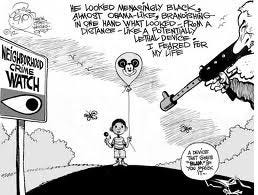A police task force is accused of rounding up & interrogating students of color.

Salt Lake City, UT - A police task force rounded up "only students of color" in an unconstitutional gang sweep of Utah's oldest high school, then built a bogus database of supposed gang members, a father claims in Federal Court.
Kevin Winston sued the Salt Lake City Police Department, three other city police departments, the Salt Lake County sheriff, the school district and Board of Education, and others, in a 51-page complaint.
Two years ago, on Dec. 16, 2010, the defendant Metro Gang Task Force staged a gang raid at West High School, in downtown Salt Lake City.
The 16-member gang unit entered the school "early in the day and remained there for several hours," Winston says, and "rounded up between 14 and 40" students.
"During the raid, officers picked up Latino, African-American and Pacific Islander students whose only mistake was to show up to school, and questioned them and photographed them for placement in a gang database, all while still in the school, regardless of whether or not the students had any actual gang membership," the complaint states. "Shockingly, only students of color were targeted by the task force."
Students were taken to a detention classroom and held against their will, Winston says.
Police searched students' backpacks and notebooks without consent, and "interrogated and photographed the students and retained the information obtained from students in police investigative files," the complaint states.
"Defendants denied students' requests to make phone calls to their parents and ignored students' requests to leave the ISD [in-school detention] room. A row of police cars was also visible outside the front of the school," the complaint adds.
Winston's African-American son, K.W., then 14, was targeted by the task force "even though he denied gang membership and had no criminal or juvenile delinquency convictions or prosecutions that predicated his identification or resulted from the sweep," the father says.
Two unidentified plainclothes police officers approached K.W. in the cafeteria, Winston says, and "asked if they could speak with him, telling K.W. that they would make him 'look cool.'"
K.W. thought the men were teachers and that he had been selected for an award, his father says, and he went with them to the detention room.
"Once in the small room, the officers accused K.W. of vandalizing the school with graffiti. K.W. denied the allegations and asked the officers why they were questioning him. The officers told K.W. that a teacher had identified him as a gang member, but refused to state which teacher had identified him," the complaint states.
The officers refused to let K.W. leave the room, told him to "quit acting tough," and grabbed his arm, "leaving a small red bruise," Winston says.
Officers searched K.W.'s backpack, interrogated him and asked for his name, race and birth. They wrote the information on a whiteboard, "including his response that his race was 'black and white,' along with the phrase 'gang tagger,'" Winston says. "Officers then required K.W. to stand to have his photograph taken while holding the whiteboard identifying him as a 'gang tagger.' When K.W. hesitated and did not move quickly enough, a police officer forcibly positioned K.W. to be photographed," the complaint states.
http://www.courthousenews.com/2012/12/17/53168.htm


